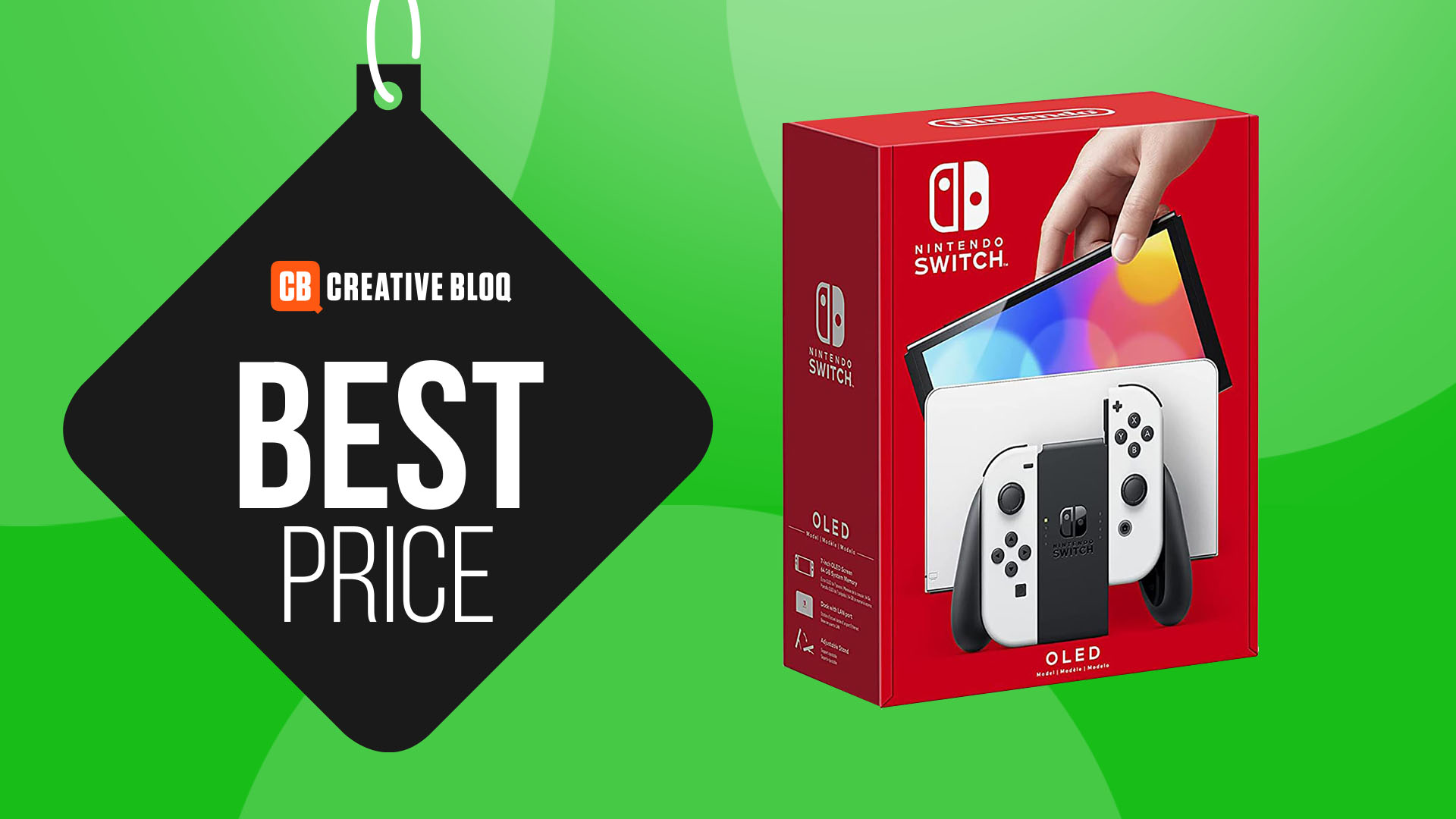Stephanie Rieger on how we may be holding the web back
Designer, researcher and mobile soothsayer Stephanie Rieger explains why our attitudes and practices may hold the web back.
Why should you care about the Internet of Things? In Stephanie Rieger's talk at Generate San Francisco on 15 July, she hopes to arm you with tools to better understand, and find your place, within this complex but fascinating landscape. Book now!
"I'm a designer and researcher," says Stephanie Rieger, as she pours a cup of tea. "I'm an occasional developer, and also co-founder of yiibu, which is a mobile user experience consultancy based in Edinburgh." Yiibu boasts a huge number of top flight clients: Nokia, Vodafone, Microsoft, and Intel, to name just a few. "We primarily do design, but we're also involved in frontend development, especially because of our mobile background. We do a lot of cross-browser optimisation. A lot of what we do is making sure things work everywhere. They have a big, diverse audience. They say help us make our stuff work everywhere."
The number two
Despite its name's exotic connotations, yiibu found its name through necessity. "It was a name that was available when we were looking for a domain, a long time ago," she laughs. "We were on dialup, and living on the island of Phuket. So, it was available and it was easy to get as we couldn't be on the internet that long." Yiibu, she tells us, actually translates as "the number two". "That seemed fitting as there were two of us in the firm (me and my husband Bryan Rieger) and there are still two of us."
Looking back at the beginnings of her career, she tells us: "Initially, I studied graphic design and illustration, and ended up in product roles. When the whole interactive thing kicked off, I drifted into project management roles, and then I moved into designing and developing my own stuff. Of course, back then it was called 'multimedia'. It dates me, doesn't it? But, I've been doing that kind of stuff ever since, though the platforms have evolved greatly.
"When I started there was no tech. If you wanted to work in tech, you became a computer scientist. It was 1997, I was working in a product management role. I convinced my boss we needed a proper computer as opposed to one of these horrible green screen terminals. I installed CorelDRAW and started being more agile about promoting their products.
"From there I started making rudimentary websites. It was still very early, but even then, that ability to rapidly iterate was super valuable for businesses. You know, it's hard to imagine how non-agile things were before computers turned into something everyone could use."
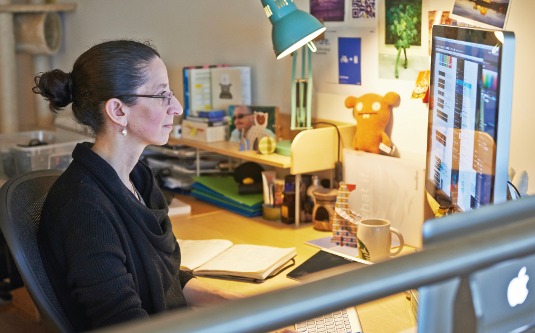
Taking a sip of tea, she pauses and continues. "You know, if you're a creative person who wants to be relevant, it's inevitable that you'll need to leverage technology, and it's a big challenge. Everybody is moving into an environment where there is a need to understand technology."
Moving on from 56Kb modems and multimedia, we want to know about Rieger's view on the current standards versus native debate.
"I'm a fan of using the best tool for the job," she says. "At yiibu, we started in mobile way back in 2003. We've designed for J2ME, Symbian and Flash Lite. We're not fussy. If there's an audience there, and an opportunity, and the project makes sense, that leads to the technology choice."
Is native better?
Expanding on her point further, she continues: "I'm not suggesting that native is better than the web. What I'm saying is that each is good at different things. It's pretty short-sighted for a business to focus on just the web, when other technologies such as Android reach well over a billion people. And, there's nothing to say that native technologies can't be standards-based. They're just not that way right now."
Rieger's international lifestyle prompts a question: are web standards a peculiarly Western fixation?
"Certainly, historically, the web standards movement has been driven more by Europe and Northern America, because that's where it got started," she tells us.

Moving to explore alternative web philosophies, Rieger confesses the subject is hard to investigate. She has one opinion though: "We'll find out pretty soon, as the number of developers in Asia and Africa will probably far exceed the numbers in the West. What's happening now in China is an interesting insight into how things might move. Right now, in China, there are several initiatives to launch a China-specific operating system. The government is behind it.
"There are also many variants of Android that have cropped up. The average Chinese Android user doesn't have access to Google Play. They use Chinese app stores, and the statistics that exist show that the apps they download are almost entirely Chinese. And this includes web browsers. It's not a given that Western-made browsers will proliferate, especially given all these new users coming online. It's not inconceivable that we'll end up with local or regional variants of web standards. It's just that, until recently, the conversation has really only included a small portion of the planet."
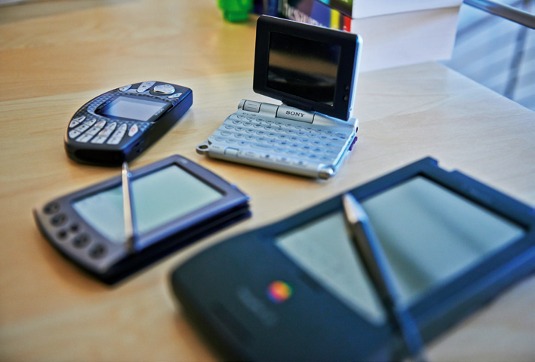
This, of course, throws the current battle cry of 'Mobile First!' into sharp relief. Nations such as China don't necessarily have the historical baggage of desktop browsers. Many users' first experience of the web will be a mobile one. Mobile is the first, last and maybe even always.
Mobile only
"Absolutely," Rieger says. "I've been doing some research into the different types of business models and applications that are coming out of China, and to a lesser degree Africa as well. In the emerging economies, on one hand, they often replicate what we've done here. But, many of their apps are mobile first entirely. WeChat is one. It started as a chatting application but now it's a platform. You pay your bills, buy things, advertise your business and do so much with it. As far as I know, it's mobile-only. There's no desktop or formal web component to it. It's just an app. And you know, given the proportion of mobile users in this market, that makes sense."
This idea of challenging the web's perceived norms brings us to Firefox OS. Thus far, she says, she's disappointed. "Personally, I find it hard to function without the ability to access content offline or the ability to save significant amounts of data to the device, without thinking about it.
"Both of these things are possible but the current ecosystem of apps doesn't quite permit it. To me, it needs to be automatic. If connectivity drops, I need to know the stuff will be there, and that I can keep working."
But does she think the idea has legs? "I think they'll make sense for people who have constant connectivity or no big need for offline apps, but, right now, they just don't suit my needs at all. Another disappointment is that both Firefox OS and Chrome OS have a standalone browser.
"I would have liked to see more experimentation with bringing [the OS and the browser] together. Why not blur those boundaries further? Why do you still have to go to a Chrome browser, when you're in Chrome OS? It's counter-intuitive."
A line in the sand
So what's the answer? Rieger says we should either be developing products for users who have grown up with the concept of a separate OS and a browser, or be brave, and draw a line in the sand. She says there's a case for developing products for people who haven't grown up experiencing the likes of Windows and OS X. Trying to always target both at the same time, she feels, may prevent technology from moving forward.
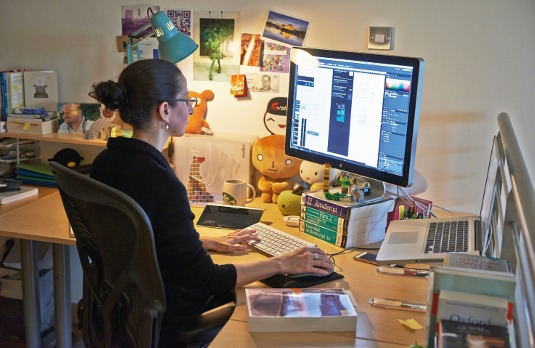
"We just need to experiment more. [I'm imagining] an OS with the web at its core, but one that could still let us draw on the native capabilities. Android is a neat candidate for that, as it's open and already allows a lot of offloading of capabilities between apps. I'd love to see somebody really change the way we think about applications."
We move to a more concrete topic: web standards. "I understand why we have standards," she says. "Especially as the web keeps growing. There has to be some common understanding of how to make stuff. What bothers me is that there are so many competing visions of what the web needs to be. People want so much from these standards. If we had more of an agreement of what we wanted the web to be, it could help us avoid some of the problems we have now. We need more focus on what the end vision is, or the end result could be that everyone starts building native apps."
So what trends and technologies is Rieger tracking closely? "Right now, NFC and Bluetooth LE. They're only accessible natively. What's interesting is that, until recently, it's been all about the web talking to other web services, and then maybe the web talking to an app. Once we start making things that talk with the physical world, I'm hopeful it'll help us clarify what we really want from the web and move away from this idea that the web has to do everything. "
It is, of course, great fun to gaze into the future and guess about what tomorrow's world holds. Our discussion, however, returns to the here-and-now and what all these possibilities mean for business.
With all these devices, platforms and possibilities, how can a brand owner go about building meaningful relationships with their customers? "I think, going forward, the key will be to really understand what each technology is good for. What opportunities does it present? What are its limitations? How many people are using it and under what context? There's too much choice now to attempt to use every technology.
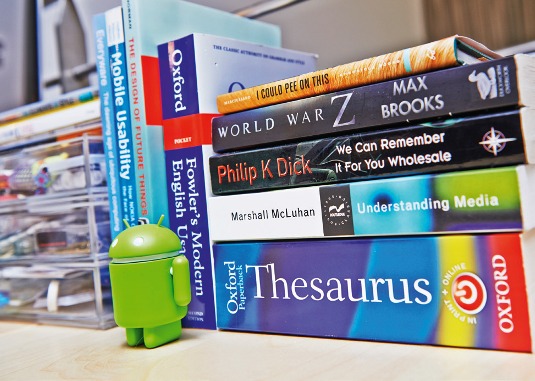
"If you use one small bit of one new platform for one really good purpose, and it doesn't break the bank, that's still a good thing. You don't need to jump in and become an NFC-first business!"
"Often," she explains, "it's the culture of an organisation that holds us back. The web group is in charge of the site and the mobile group that does the app." Projects and products, she tells us, are often created in insulated silos. From a business perspective, Rieger believes, that's just crazy.
Ideal world
"In an ideal world, you want these things working together and then you'll be able to really understand which technology is best for which application. Users will show you which ones they prefer. If you don't listen, you'll be endlessly building one of everything on every platform."
Words: Martin Cooper
Don't miss Stephanie's talk - The Internet of Things is for People - at Generate San Francisco on 15 July. Limited discounts are available now for all three Generate events, saving you up to £100; get your ticket today!
This article originally appeared in net magazine issue 252.

Thank you for reading 5 articles this month* Join now for unlimited access
Enjoy your first month for just £1 / $1 / €1
*Read 5 free articles per month without a subscription

Join now for unlimited access
Try first month for just £1 / $1 / €1
Get the Creative Bloq Newsletter
Daily design news, reviews, how-tos and more, as picked by the editors.

The Creative Bloq team is made up of a group of art and design enthusiasts, and has changed and evolved since Creative Bloq began back in 2012. The current website team consists of eight full-time members of staff: Editor Georgia Coggan, Deputy Editor Rosie Hilder, Ecommerce Editor Beren Neale, Senior News Editor Daniel Piper, Editor, Digital Art and 3D Ian Dean, Tech Reviews Editor Erlingur Einarsson, Ecommerce Writer Beth Nicholls and Staff Writer Natalie Fear, as well as a roster of freelancers from around the world. The ImagineFX magazine team also pitch in, ensuring that content from leading digital art publication ImagineFX is represented on Creative Bloq.
